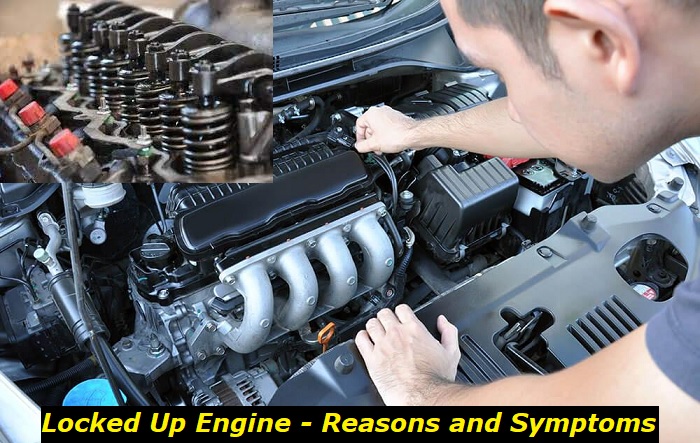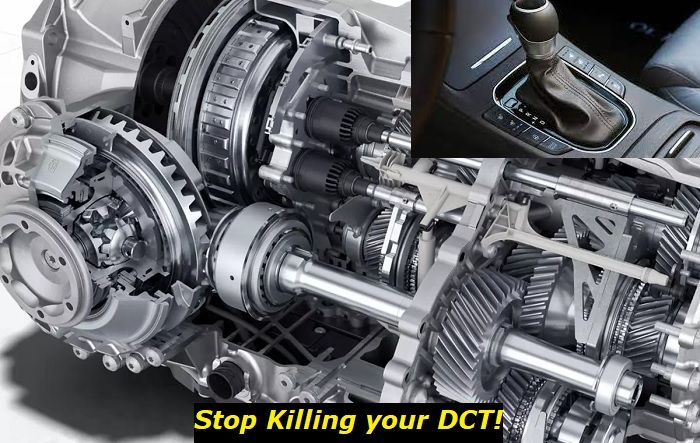A car will take you from point A to point B. Over time, we tend to take this for granted and go as far as ignoring basic car maintenance of the car. There are so many things that can go wrong with your car. One among them is engine lock up. This is the most dreaded engine problem by most drivers.
Internal engine problems highlights
- Level of importance:High
- Commonreasons:Mileage, poor maintenance, improper use, physical damage
- DIY inspection:Possible but may be complicated
- DIY repair:Possible, in some cases
- Price for repair:$250 - $1,500
- Can you drive?Depends on the issue
- Ways to fix:Locate the problem, outline possible fixes, replace or repair the worn-out parts

Understanding engine lock up
When people say their car's engine is locked, they are likely talking of engine seize. The engine has many moving parts, mostly metallic. You have the pistons, main bearing, valves, and crankshaft, among other parts that require to move for the engine to operate. Such parts require plenty of lubrication because they generate a lot of heat. The excess heat in the engine causes it to lock up.
Inadequate lubrication means the metal surfaces of the moving parts will have a lot of friction. An engine lock-up is a mechanical malfunction of the engine's internal components. Maintaining proper oil levels and quality in the engine is important to avoid this big problem.
When the engine moving parts grind against each other, they will generate a lot of heat, and this will cause some metal parts to melt, warp, or break. The engine will ultimately stop working. The resulting damage is usually catastrophic and very expensive to correct. In most cases, an engine lock-up will require an engine replacement.
Engine lock-up will more often than not happen when the driver fails to take care of obvious warning signs, such as engine overheating or not checking the oil level in the engine. This doesn't mean you can fully safeguard yourself from an engine lock-up. We have highlighted the other possible causes of engine seizure in the article.
What are the main symptoms of engine lock-up?
1) The engine won't start
Failure to start is the most obvious sign you may have a seized engine. You can turn the engine ON, and the dashboard lights will come alive. But other than that, there won't be any sound coming from the engine other than the starter click.
There are numerous reasons why the engine won't start. It could be a bad starter, a dead battery, or bad wiring. To confirm that it is the engine that is locked up, you will need to pop up the hood. Find the crankshaft pulley on the side where the timing belt or chain is located.
Using a long breaker bar, locate where the center nut of the crankshaft and attach and turn it clockwise. If there is difficulty turning the nut, then the engine is locked up. In most cars, the crankshaft pulley is in the middle though some are at the bottom. You should put the vehicle in neutral or raise it with a jerk.
2) A loud knocking or clunking noise, and then the engine stalls
Any knocking noise coming from the front part of the vehicle will give every driver beads of sweat. While many knocking noises your car makes can be resolved reasonably easily, a loud knocking noise accompanied by low power or engine stall is bad news.
A loud knocking noise is usually associated with an engine component, such as a piston or piston rod missing its predetermined path and boring a hole in the engine block. This noise is loud, and there is little chance the driver or the car occupants will miss it. This is the most serious damage associated with an engine lock-up. Repairing the engine is almost impossible, and in most cases, you will end up replacing the engine or the car because of the high cost associated with such repair work.
3) Check engine light
The check engine warning light is an important indicator that can help you resolve many engine issues affecting your car. Unfortunately, quite a number of drivers are in the habit of ignoring the CEL.
If the engine parts are inadequately lubricated or there is excessive friction between the engine's moving parts, the CEL should alert you. This light usually appears way before the engine locks up. The check engine light is orange, one with an outline of an engine.
4) Check oil level light
This is another warning light that many drivers ignore or have no idea what it means. The light is usually red, yellow, or orange, highlighting an engine sump with a drop next to it. If there is a problem with the oil in your vehicle, this light should appear on the dashboard. Like the CEL, this light appears way well before the engine seizes.
The check oil light is the most telling light to look out for because engine lock-up emanates from oil-related issues. Even though, this light can appear because of low oil pressure or an oil leak, it can also appear when the oil is overly contaminated, the oil system is blocked, or when the oil level is low. All of these reasons will lead to engine lock-up if left unattended.
The check oil indicator can be accompanied by a burning smell that lets you know engine parts are burning or smoldering. Engine overheating is another symptom that usually goes with the check oil indicator if the problem is a low oil level.
5) Damaged engine parts
Severe engine lock-up usually comes with a damaged engine block or bent piston rods. In some cases, you can see where the piston lodges itself into the engine block and penetrates it. In such cases, the piston or piston rods can be seen from the top of the engine block.
Let us now look at the common causes of engine lock-up. Knowing the possible causes will help you avoid them and be on alert whenever the above symptoms start manifesting themselves.
Common causes of engine lock up
1) Lack of oil
The main cause of engine lock-up is the lack of oil. As stated earlier, oil in the engine creates a thin layer between the moving components of the engine. This layer ultimately prevents metal parts from rubbing against each other. Your car has an indicator to warn you whenever there is an engine oil issue.
When the engine runs low on oil and continues driving, the engine is likely to lock up. Another reason the engine may run out of oil is if you hit a boulder with the undercarriage and fail to check. In some cases, the oil sump can be hit and damaged, and it may leak all the oil. An engine lock-up caused by a lack of oil is very expensive.
2) Lack of car use
You fly back from a foreign land after spending two quality years abroad. You hop in the driver's seat and crank the engine, and nothing happens. When the engine stays for a long time without running, rust accumulates around the piston heads and makes the piston rings stuck.
To avoid this problem, start the engine every few weeks. While at it, check for oil leaks, as oil can drip over a long period of time until the sump runs dry.
3) Hydrolock
You should avoid driving your car into puddles of water. If absolutely necessary, the water puddles you drive into should never reach the air intake. When water enters the cylinder, catastrophic damage is bound to happen. The cylinder is meant to compress fuel and air.
Compressing water is impossible, and because the crankshaft is already in motion, the respective piston and rod will get damaged. The higher the speed, the greater the likelihood of serious hydro lock damage. Diesel engines are the most affected by this kind of lock-up.
4) Circulation problem
Improper or failure of oil circulation in the engine will lead to engine lock up. A circulation problem is normally associated with a malfunctioning oil pump. The quality of oil in circulation will affect an oil pump's performance. It is, therefore, very important that you change the oil as recommended and don't forget to replace the oil filter while at it. For this reason, you should never ignore dashboard warning lights such as oil change or the check engine light.
Conclusion
In our article, we have looked at the common symptoms to check when you want to establish whether your car's engine is locked up. We have also explored the various possible causes of this problem.
Having this information should help a driver know how to prevent an engine lock-up. Engine lock-up remedy is usually very expensive, and in most cases, the owners of these cars abandon their precious cars or sell them at throw-away prices.
About the authors
The CarAraC research team is composed of seasoned auto mechanics and automotive industry professionals, including individuals with advanced degrees and certifications in their field. Our team members boast prestigious credentials, reflecting their extensive knowledge and skills. These qualifications include: IMI: Institute of the Motor Industry, ASE-Certified Master Automobile Technicians; Coventry University, Graduate of MA in Automotive Journalism; Politecnico di Torino, Italy, MS Automotive Engineering; Ss. Cyril and Methodius University in Skopje, Mechanical University in Skopje; TOC Automotive College; DHA Suffa University, Department of Mechanical Engineering






Add comment